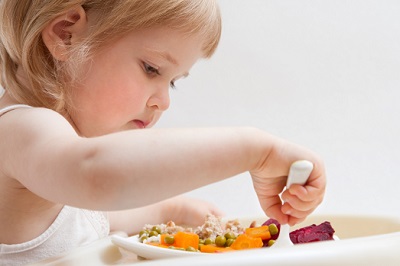Children who eat more or less when stressed or upset have learned the behaviour rather than inherited it, a study suggests.
A study by University College London found home environment was the main cause of emotional eating, according to BBC.
And this was due to parental behaviours including giving upset children their favourite food to soothe them.
But eating-disorder charity Beat says parents shouldn’t be blamed for children’s eating issues.
Emotional eating “indicates an unhealthy relationship to food”, said senior lead researcher Dr Clare Llewellyn.
“Rather than finding more positive strategies to regulate their emotions, they’re using food,” she said.
“A tendency to want to eat more in response to negative emotions could be a risk factor for the development of obesity. And emotional over- and under-eating could be potentially important in the development of eating disorders such as anorexia nervosa or binge-eating disorder.
“Understanding how these tendencies develop is crucial, because it helps researchers to give advice about how to prevent or change them, and where to focus future research.”
Identical and non-identical twins
The study, looked at 398 four-year-old British twins from the Twins Early Development Study (TEDS).
Half of the twins came from families with obese parents, putting them more at risk of becoming obese themselves, and half from parents with a healthy weight.
Parents reported on their children’s eating traits and tendency to emotionally eat – answering questions such as whether the child wanted to eat more when irritable or less when sad.
They compared the questionnaire data between identical and non-identical twins along with their rates of emotional eating and found very little difference between the twins whether they were identical or not – suggesting environment had more of an influence than genes.
Previous studies have indicated that other eating behaviours in early childhood are strongly influenced by genes.
They include:
Speed of eating
How soon you feel full
Wanting to eat just for pleasure
The researchers said their new work was “significant” because it added weight to the results of a bigger study they had carried out last year with a totally different twin sample.
“The trait is starting to develop in the important formative pre-school years. And it indicates there is scope for giving parents more directed advice about sorts of strategies they use to help their children when they’re upset during the very important early years when behaviours start to develop,” said Dr Llewellyn.
H.Z

